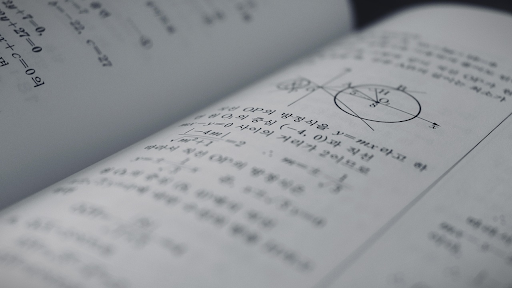When it comes to GCSE revision, there’s no shortage of resources: textbooks, flashcards, videos, apps, and online quizzes. It can feel like you’re being pulled in every direction. But there’s one tool that stands out for being consistently effective: past papers.
These are real exam papers from previous years. They give you a clear idea of what to expect and how to prepare. If you’re serious about improving your results, using past papers regularly is one of the smartest things you can do.
Let’s break down why they’re so helpful and how to make the most of them.
Why Past Papers Help So Much
1. They show you the exact exam format
One of the best things about past papers is that they’re the real thing. The layout, the wording, the types of questions—everything matches what you’ll see on exam day. The more familiar you are with that format, the more confident you’ll feel.
2. You learn how questions are asked
What you know matters, but how you apply it makes the real difference. Past papers train you to spot what a question is really asking. For example, there’s a difference between “describe” and “explain.” Practising with real questions helps you get used to that.
3. You find out what you don’t know
It’s easy to feel like you know a topic just because you read it in your notes. But when you try a past paper and can’t answer the question, that’s a wake-up call. It shows you where to focus your revision.
4. They build exam stamina
GCSE exams are long, and they require focus. Doing full papers under timed conditions helps you build that mental stamina. The more you practise, the less draining it feels on the day.
How to Use Past Papers Properly
Start early
Don’t wait until the week before your exams. Start using past papers as part of your revision plan from the beginning. One paper a week per subject is a good place to start.
Use a timer
Always try to complete a paper in the time you’ll have in the actual exam. That helps you get a feel for how long to spend on each section and avoid rushing the final questions.
Mark your answers with the official mark schemes
After finishing a paper, mark it yourself using the exam board’s mark scheme. This helps you understand what the examiners are looking for. Sometimes it’s not enough to know the content; you need to show it in the right way.
Use examiner reports
Most boards publish short summaries explaining what students did well or poorly on each paper. These reports are packed with useful tips. They highlight common mistakes and show you what to avoid.
Track your progress
Keep a notebook or spreadsheet where you log your scores. Include notes like “lost marks for not explaining” or “missed key formula.” Over time, patterns will appear, and you’ll know exactly what to work on.
Mix open and closed books
Try both styles. Open-book helps with learning. Closed-book tests your memory. Switching between them keeps your brain active and your revision balanced.
Some Subject-Specific Tips
Maths
Past papers are essential. They help you spot common question types and sharpen your working-out process. Try doing some without a calculator to keep your mental maths sharp.
Science (Biology, Chemistry, Physics)
Many students lose marks for how they phrase their answers. Past papers teach you how to explain clearly. Always review with the mark schemes to learn the correct terms.
English Literature and Language
In Literature, past papers help you plan essays and manage your time. In Language, they help you get used to writing creatively and analysing unseen texts under pressure.
History and Geography
You’ll often be writing longer answers. Past papers let you practise timing, structure, and using case studies or sources effectively.
Where to Find Past Papers
Most exam boards offer past papers for free, like the Edexcel (Pearson). Other exam boards like AQA and OCR also have their own websites with free access to past exams and mark schemes.
One Warning: Don’t Just Read Them
A lot of students think reading through a past paper is enough. But that’s like reading the rules of football and expecting to be good at playing. You have to actually do the work. Write out full answers. Time yourself. Mark your work. Then review what went wrong.
Combine Past Papers With Other Tools
While past papers are great, they work best when combined with other study methods. A good revision routine might include:
- Reading summary notes
- Watching explanation videos
- Using online quizzes
- Making flashcards
- Joining study groups
If you want help staying consistent, check out GCSE Revision resources from Flyp Academy. Their system includes structured learning, exam practice, and feedback to help you improve over time.
And if you’re learning from home or doing remote revision, these online learning tips can help you avoid distractions and keep your focus where it matters.
Takeaway
Past papers aren’t only for checking your knowledge but for building it. They give you the chance to learn the format, spot your weak points, and fix them. They get you used to the pressure and help you avoid silly mistakes.
So go ahead: choose a paper, set a timer, and get started. The more you practise now, the better prepared you’ll be when it counts.
